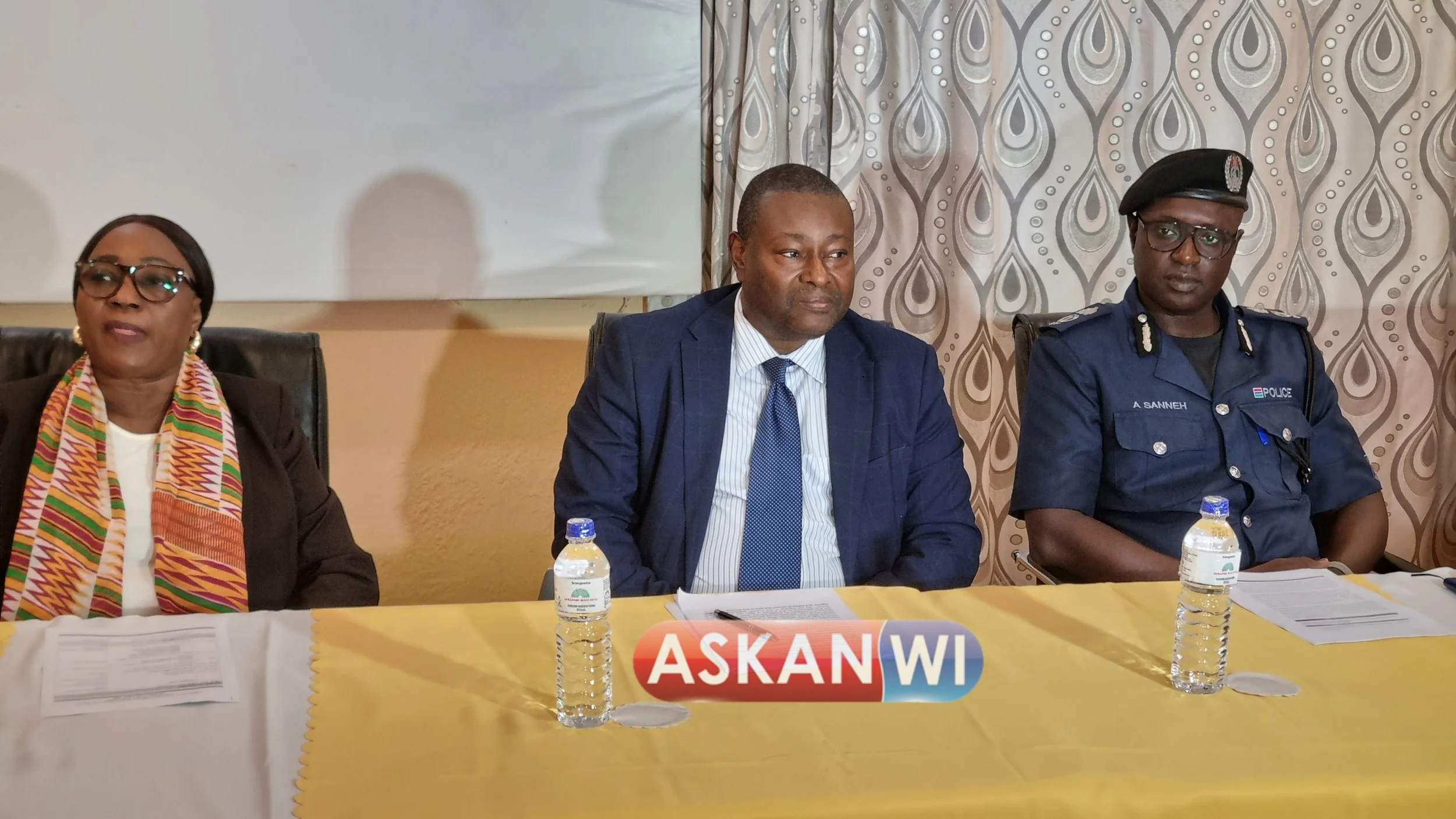Police Charge Three Women in High-Profile FGM/C Infant Death Case
Police Commissioner Abdoulie Sanneh © Askanwi
By Yusef Taylor, @FlexDan_YT
During the National Human Rights Commission’s (NHRC) two-day training on the Women’s (Amendment) Act 2015, Police Commissioner Sanneh announced that three alleged perpetrators in the recent death of an infant from female genital mutilation/cutting have been charged in court.
Speaking to police officers and other stakeholders at the Senegambia Beach Hotel on 13th August 2025, The Gambia Police Force’s Commissioner of Prosecution and Legal Affairs, Abdoulie Sanneh, explained that he should have been “on the way to the Bundung Magistrate Court to discuss this same case in which we are arraigning three accused persons. They are arrested, they are charged, the file is completed. We are only waiting for the post-mortem result, but the investigation is already completed, and we are putting them before the court.”
An update from the Gambia Police Force issued today revealed that “three women have now been charged under the Women’s (Amendment) Act, 2015. The first accused, Fatou Camara, has been charged under Section 32A – Prohibition of Female Circumcision, which carries a penalty of life imprisonment. She has been remanded in custody by Magistrate Sambou of the Brikama Magistrates’ Court.”
Section 32A of the Women’s (Amendment) Act 2015 carries a sentence of life imprisonment “where female circumcision causes death.”
The police report adds that “the second and third accused, Oumie Sawaneh and Hawa Conteh, are charged under Section 32B – Accomplices to Female Circumcision. Both have been granted bail, as the offence is bailable.”
Section 32B of the Act carries a maximum sentence of “three years or a fine of fifty thousand dalasis or both.”
Explaining the status of the case, Commissioner Sanneh noted that the alleged perpetrators “are already charged with an offence that attracts life imprisonment, because if you look at the Women’s (Amendment) Act 2015, that is where the punishment states that if anybody is found guilty of this offence, the punishment is life imprisonment.”
According to the Police Commissioner for Prosecution, Sanneh, “when it comes to the law, the police don’t prosecute cases that attract life imprisonment. We only have to mention the case and transfer it to the High Court. So, as we speak, the matter has already been mentioned and it has already been transferred to the High Court.”
NHRC Chairperson Joof (middle) © Askanwi
Speaking before the Commissioner’s announcement, NHRC Chairperson Mr. Emmanuel Daniel Joof commended “the office of the IGP for their swift response.” He welcomed their statement and noted that “we learn also that they have apprehended some, but not all, of the alleged perpetrators, and we are monitoring the situation. We hope that a proper investigation will be carried out and that justice will take its course without interference.”
Speaking on the importance of enforcing the law, Mr. Joof noted that “there is one hard truth, and that is a law is only as strong as the people who enforce it. We can have laws in our statute books and, oh my God, Gambia, we’re good at that. But if we are not serious in implementation, then that law is as good as not having that law.”
Turning his attention to the societal pressure that comes with such a high-profile case, he told officers that “some of you may be under pressure, and unfortunately you are sometimes asked to look the other way. It’s unfortunate that we believe, as human rights practitioners, that in this particular case of FGMC, many of you are asked to look the other way.”
He reminded police officers that their “oath is not to our tradition. It is to the Constitution, it is to the laws of The Gambia, and it is to the people that you serve. To humanity, but most importantly to the vulnerable babies, the girls, and the young women, who are our daughters, your daughters, our sisters, your nieces, and relatives.”
“It should be in all our minds that every time we fail to enforce this particular law, we fail a child. This is what happens. This was the only one that perhaps gained prominence; there are many more. And you know, you are the station officers. You know more than I do. You know how many have been swept under the carpet. Every time we fail to enforce the law, we fail a child. But every time we enforce it properly, we protect a life, we preserve dignity, and we uphold the values that define us as a just society.”


